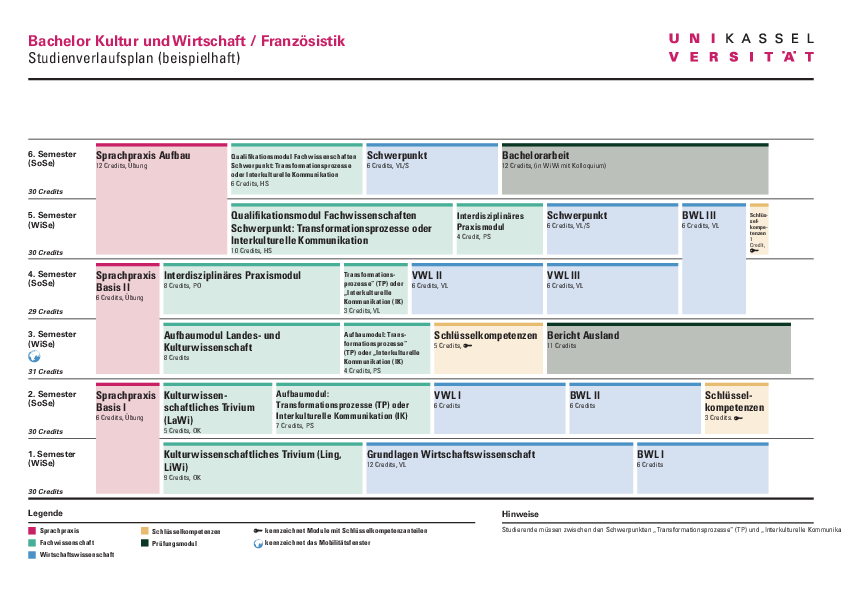How is the course structured?
This page contains automatically translated content.
In the "Culture and Business" degree course, eight modules are dedicated to culture and language, whereby students must choose one of two specializations after the foundation modules: Transformation Processes or Intercultural Communication. A maximum of ten modules are devoted to economics. The remaining modules consist of the study abroad/internship abroad, an interdisciplinary practical module, the Bachelor's degree module and the key competencies.
The basics consist of modules 1-4: Language Practice I, II and Structure as well as the Cultural Studies Trivium, which introduces the basics of literary studies, linguistics and regional studies.
The advanced and qualification modules in the area of Culture & Language serve as a specialization. The focus on transformation processes comprises three modules in the field of literature and cultural studies, in which students deal in particular with education for sustainable development, sustainability in business, intercultural education and transformative narration and postcolonial theory. Students acquire the ability to participate in academic discussions on issues of cultural change.
The advanced and qualification modules in Culture & Language serve as a specialization. The Intercultural Communication specialization comprises three modules in the field of linguistics, in which students deal with linguistic working techniques, theories and issues. By working on selected subject areas such as language culture and intercultural business communication, students are able to apply linguistic methods in a reflective and insightful way to questions relating to the thematic focus.
Economics teaches the fundamentals of business administration and economics. Later on, students can choose from a variety of modules, including controlling, marketing, supply chain and innovation management.
In this module, students acquire the ability to carry out and present independent projects in the field of cultural mediation.
In the third or fifth semester at the latest, students complete a semester abroad or alternatively an internship of at least eight weeks in a French-speaking country.
The topic of the Bachelor's thesis is issued at the beginning of the sixth semester at the earliest if the requirements specified in the examination regulations are met. The topic is chosen according to the student's own research interests and in close consultation with the chosen examiner. The thesis can be written in either German or French.
Key competencies enable students to acquire or deepen skills that are not directly related to the subject in order to complement their own profile. This can include internal and/or external university involvement, but also separate and designated courses at the University of Kassel, e.g. practical coordination workshops on content management programs or web editing.
